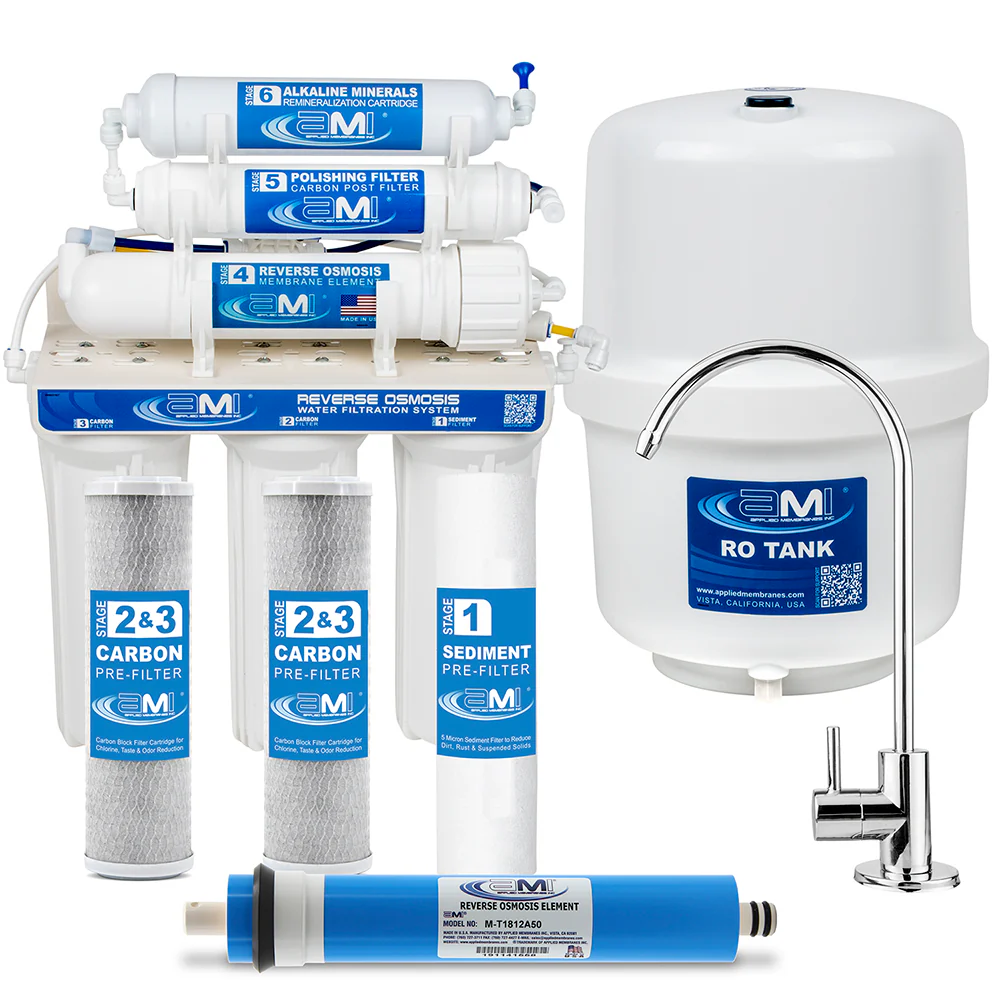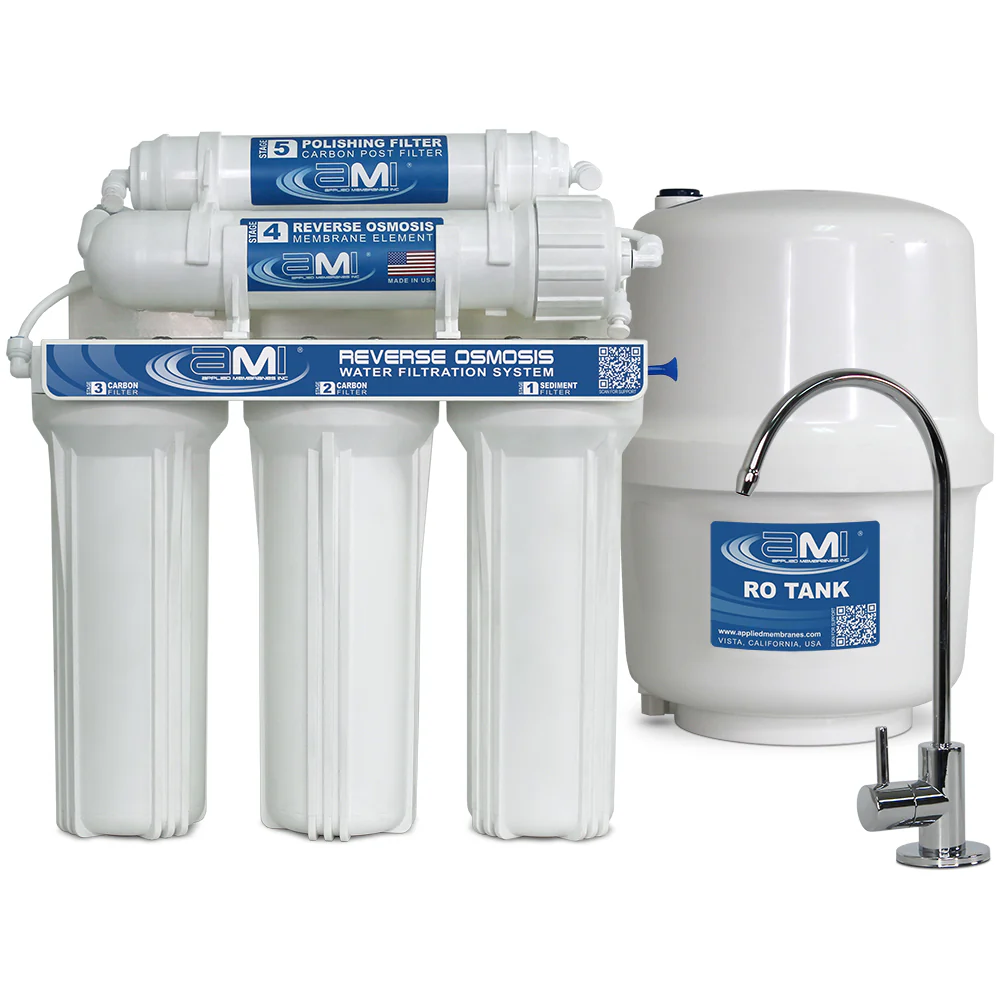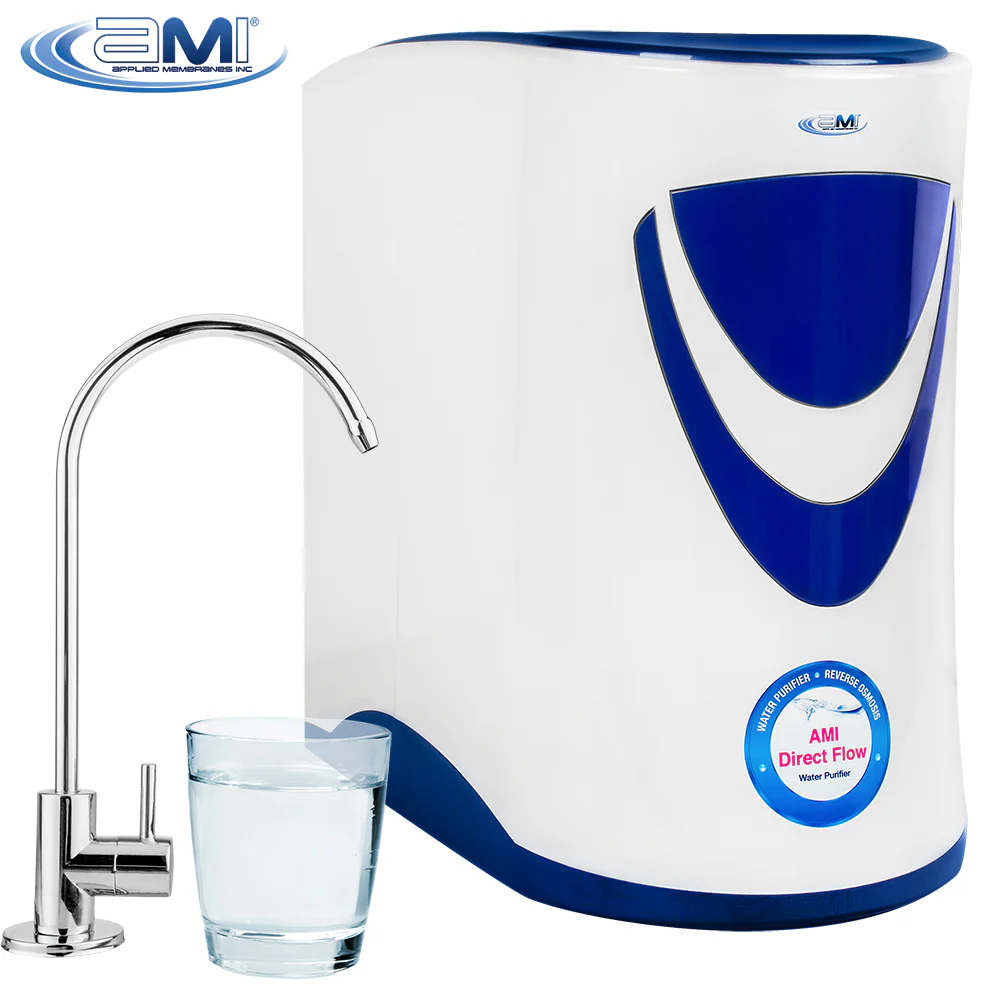For homeowners who rely on well water, ensuring clean and safe drinking water is a priority. Well water often contains a high level of sediment, dirt, rust, and other particulates that can affect water quality and damage plumbing systems.
A high-quality sediment filter is essential to remove these impurities before the water reaches your tap.
In this guide, we will explore the best sediment filters for well water and discuss the features that make them effective.
What is Well Water?
Well water is sourced directly from underground aquifers through a well that is drilled or dug into the ground. Unlike municipal water, which is treated at a centralized facility, well water is naturally filtered through soil and rock. However, it often contains various sediments, minerals, and contaminants that need to be filtered before consumption.
How Does Well Water Differ from Other Water?
Well water differs from municipal water and other sources in several ways:
- No Chemical Treatment: Unlike city water, well water is not treated with chlorine, fluoride, or other chemicals unless done manually by the homeowner.
- Higher Sediment Levels: Well water often contains more sediment, including sand, dirt, and rust, due to natural underground sources.
- Varied Mineral Content: Depending on the location, well water may have high levels of iron, manganese, and calcium, which can lead to hard water issues.
- Potential Contaminants: Well water can be contaminated by bacteria, pesticides, or industrial runoff if not properly tested and treated.
For homeowners who rely on well water, ensuring clean and safe drinking water is a priority. Well water often contains a high level of sediment, dirt, rust, and other particulates that can affect water quality and damage plumbing systems. A high-quality sediment filter is essential to remove these impurities before the water reaches your tap. In this guide, we will explore the best sediment filters for well water and discuss the features that make them effective.
Why Sediment Filters Are Essential for Well Water
Unlike municipal water supplies that undergo extensive treatment before reaching homes, well water is directly sourced from underground. This means it can contain:
- Sand, Silt, and Dirt – Common in water drawn from shallow wells.
- Rust and Iron Particles – Often present due to corroding pipes and natural mineral deposits.
- Organic Matter – Leaves, algae, and other debris can make their way into groundwater.
- Bacteria and Other Contaminants – Though sediment filters do not eliminate bacteria, they act as a pre-filter to prevent larger particles from clogging finer filtration systems.
By removing these sediments, a good filter can prolong the life of your plumbing system, appliances, and water treatment units such as reverse osmosis (RO) systems.
Best Sediment Filters for Well Water
1. 50 GPD Home RO Drinking Water System | 5-Stage RO System
Key Features:
- 5-Stage Filtration Process:
- Stage 1: 5-micron sediment filter removes dirt, rust, and sand.
- Stages 2 & 3: Dual activated carbon block filters eliminate chlorine and odors.
- Stage 4: Reverse osmosis membrane that removes up to 99% of dissolved solids.
- Stage 5: Post-carbon filter for taste enhancement.
- Capacity: Provides up to 50 gallons of purified drinking water per day.
- Compact Design: Fits under most kitchen sinks for easy installation.
Why It’s Best for Well Water:
The robust 5-micron sediment filter in the first stage efficiently captures large particles before they reach the more delicate reverse osmosis membrane. This makes it ideal for well water with a moderate level of sediment. If you have a small to medium household, this system will provide clean water without overburdening the filtration components.
👉 Click here to check the price and buy the 50 GPD Home RO System
2. 100 GPD Home RO Drinking Water System | 5-Stage RO System
Key Features:
- Enhanced Filtration: Identical 5-stage filtration process as the 50 GPD model.
- Higher Capacity: Provides up to 100 gallons per day, making it ideal for larger households.
- Dual Carbon Filters: Improve removal of chlorine, odors, and chemicals.
Why It’s Best for Well Water:
For families that consume more water daily, this system offers double the capacity of the 50 GPD model while maintaining the same level of filtration efficiency. The initial sediment filter ensures that large particles do not reach the membrane, making it suitable for homes with moderate to high sediment content in their well water.
👉 Click here to check the price and buy the 100 GPD Home RO System
3. AMI Direct Flow – Tankless RO System for Home Water Treatment | 600 GPD
Key Features:
- Direct Flow Technology: Eliminates the need for a storage tank.
- 5-Stage Advanced Filtration: Includes a sediment pre-filter, activated carbon, and reverse osmosis membrane.
- High Capacity: Produces up to 600 gallons per day.
- Minimal Waste Water: More efficient compared to traditional RO systems.
Why It’s Best for Well Water:
If you need a high-performance system that can handle large volumes of water without the downtime of tank refilling, this tankless RO system is an excellent option. Its pre-filtration stage effectively removes sediment before water passes through the reverse osmosis membrane, making it ideal for well water with significant particulate content.
👉 Click here to check the price and buy the AMI Direct Flow System
Factors to Consider When Choosing a Sediment Filter for Well Water
When selecting a sediment filter, consider the following factors:
1. Micron Rating
The micron rating determines the size of particles the filter can capture. For well water:
- 50-micron filters remove large particles like sand and dirt.
- 5-micron filters (such as those in the systems above) remove fine sediment and rust.
- 1-micron or smaller filters are necessary for removing very fine particulates.
2. Flow Rate
Your water usage will determine the ideal flow rate:
- Low Flow (5-10 GPM): Suitable for small households.
- Medium Flow (10-20 GPM): Works well for larger families.
- High Flow (20+ GPM): Needed for whole-house systems or homes with high water demand.
3. Type of Filtration System
- Spin-down filters: Best for large sediment removal and are reusable.
- Cartridge filters: Provide finer filtration and need regular replacement.
- Reverse osmosis systems: Offer the highest level of purification but require a good sediment pre-filter.
4. Maintenance and Lifespan
Choose a system that is easy to maintain and has filters with a long lifespan. RO systems generally require filter changes every 6-12 months, depending on water quality and usage.
Pros and Cons of Having Well Water
Pros:
- No Monthly Water Bill: Since well water is sourced directly from underground, homeowners don’t have to pay for municipal water usage.
- Chemical-Free: Unlike city water, well water is free from added chlorine, fluoride, and other chemicals.
- High Mineral Content: Provides essential minerals like calcium and magnesium, which can be beneficial for health.
- Independence from Municipal Supply: In case of city water shortages or contamination issues, well owners remain unaffected.
- Sustainable Source: As long as the aquifer remains replenished, well water can be a reliable and eco-friendly option.
Cons:
- Requires Regular Testing: Well water is more susceptible to contamination, requiring frequent testing for bacteria, heavy metals, and other pollutants.
- Potential Hard Water Issues: High mineral content can lead to limescale buildup in plumbing and appliances.
- Dependent on Electricity: Most well pumps require electricity to function, making water access vulnerable during power outages.
- Initial Installation Costs: Drilling a well and installing filtration systems can be expensive upfront.
- Possible Contamination Risks: Nearby industrial, agricultural, or septic system activities can pollute well water if not properly monitored.
Final Thoughts
Choosing the best sediment filter for well water is essential to ensure clean and safe drinking water. The right filtration system can prevent damage to your plumbing, improve water taste, and provide peace of mind knowing that your well water is free of harmful contaminants.
Among the top choices:
- The 50 GPD RO System is perfect for small to medium households with moderate sediment levels.
- The 100 GPD RO System is great for families requiring a higher water output.
- The AMI Direct Flow System is a powerhouse, ideal for homes needing high capacity and minimal water waste.
No matter which system you choose, ensuring your well water is properly filtered will protect your health and extend the life of your appliances.


